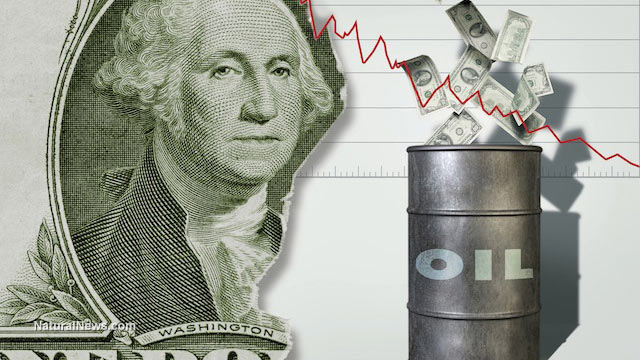It’s been a dark day for oil. For the first time in more than six years, oil prices have plummeted below $40 a barrel. The incident coincides with the stock market bloodbath in the United States, China and Europe.
A move in the price of oil was original due to supply and demand in the past. Nevertheless, the recent plunge has been a consequence of what appears to be a global recession.(1)
Prices fell a whopping 35 percent since they peaked in June. Producers have been surpassing demand even as an oversupply caused prices to fall. It’s possible that the U.S. benchmark West Texas Intermediate could drop $32 on the persisting global surplus, according to a recent report provided by the Citigroup Inc. China’s growing economy may also reduce demand in the future. Brent crude fell to a six-year low as well.(2)
“It’s clear that the major producers, the Saudis, Russians, the U.S. and others, are battling for market share,” John Kilduff, a partner at Again Capital LLC, told reporters at Bloomberg Business.(2)
Furthermore, the Dow Jones Industrial Average closed at session lows, down 531 points. All blue chips are on the decline. This is the first time the index closed more than 500 points off since early August in 2011. Since then, the index has had four brushes with closing losses of more than 400 points.(3)
Oil prices expected to drop even more
Many people are wondering how low oil prices may drop. “I think the market almost has to have a $30-handle on it before it gets this out of its system,” said Tom Kloza, chief oil analyst at the Oil Price Information Service, in a CNN Money article. “There are an awful lot of smart people who think this market is on a rendezvous course with the December 2008 low of $32.40,” he continued.(4)
Before the end of the day, commodity futures price quotes for October delivery of West Texas Intermediate crude oil dropped to $39.86, which is the lowest it has ever been since 2009. It then rose again slightly but by the end of the day lost 87 cents, or 2.11 percent, settling at $40.45 a barrel, according to the New York Mercantile Exchange.(2)
Demand for oil decreases in China
According to the U.S. Energy Information Administration, crude supplies increased 2.62 million last week. This surprising gain in U.S. inventory came after hints suggesting that OPEC was planning to increase production. A Chinese manufacturing gauge plummeted to its lowest depths since the 2008 stock market crash. Many fear that demand for oil will decrease in the world’s second largest consumer of oil.(2)
The stock bloodbath is currently ensuing globally too. China’s market collapse is parallel to U.S. exchanges in the Wall Street crash of 1929. Mike Adams, Editor-in-Chief of Natural News, notes the somber future that lies ahead for the global economy:
“We are now witnessing the first rumblings of what I believe will ultimately cascade into a runaway market freefall. Our world has been running on debt and delusion for so long that people have begun to think this is the norm, but the laws of economics prove it isn’t. All debts eventually come due. All fiat currencies eventually fail. All nations running on socialist entitlements eventually run out of money. These are immutable laws of reality that our modern world is sadly going to have to learn through catastrophe.”(5)
Sources include:
(1) ZeroHedge.com
(2) Bloomberg.com
(3) CNBC.com
(4) Money.CNN.com
(5) NaturalNews.com


